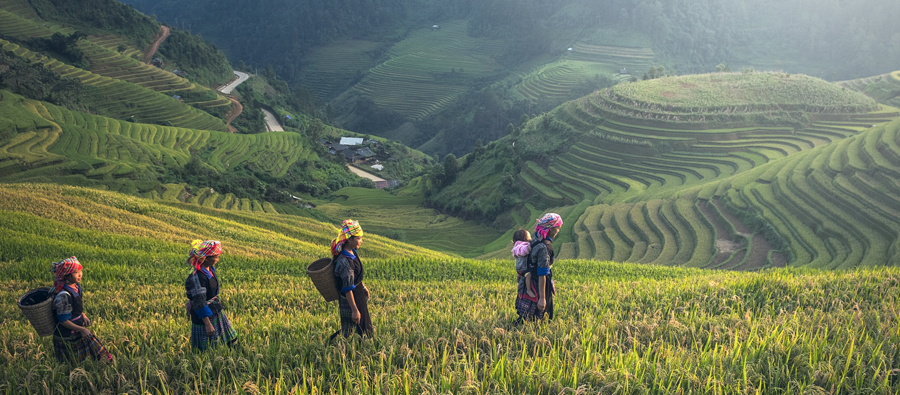Sok Sotha, Managing Director of Cambodian Farmer Federation Association of Agriculture Producers (CFAP), explores the challenges that a changing climate brings to Cambodian farmers. This guest-post is part of Farming First’s ‘Farmers Taking Action on Climate Change’ campaign for the COP25.
From perhaps the early 2000s up to today, our members have been facing a range of problems related to climate change. The diversity of Cambodia’s produce – including rice, poultry, fish and vegetables – means that climate change can affect every farmer differently. And with agriculture’s role as one of the biggest sectors of our economy, helping farmers adapt to these new stresses is crucial.
Around 82 per cent of Cambodians are farmers, with most of them being rural smallholder farmers. They still depend on rainwater for irrigation, meaning drier seasons make farming more difficult. Dry season are becoming more difficult as the temperature now rises to 42 degrees Celsius.
The temperature changes more rapidly from night to day as well. During the day it can range from 40 to 42 degrees, whilst at night it’s only around 27 degrees. Our farmers know the temperature has increased: they can feel it.
This creates new challenges for our farmers. Farmers have tried to combat the hotter weather by protecting farms through simple solutions like straw piles or house nets. These kinds of frugal tools can help protect crops from heat. Unfortunately, what we’ve found is that it is often not enough. One way or another, climate change will still affect them.
Accessing finance would allow them to better prepare their farms for changing weather conditions. But most Cambodian farmers are poor, and work on small-scale farms with limited access to capital. Historically, farmers have been one of the riskier occupations for bankers to lend too. If farmers can’t go to the bank to borrow money, how can they prepare their farms for climate change? This has become our main concern as an organisation.
Likewise, it is important that farmers are given the right tools to adopt more climate-smart agricultural practices. But this starts with the right level of training. Providing technical training to farmers, schools and university students, will allow not just the farmer on the field to adequately prepare for the forthcoming challenges, but the wider local community as well.
As the national farmers union, CFAP runs capacity building programs, which are given to regional farmer union leaders, to equip farmers in their regions with the necessary knowledge and skills to help adapt to and mitigate against the effects of climate change.
Farmers also need regular information, regarding weather patterns, policy discussions and new best practice methods. They need to have regular updates to help them prepare their cropping calendar appropriately.
At CFAP, we advise farmers to change the varieties of crops they use to better withstand climate stress. We also provide information on how to modernise their farming processes, as modern practices have been seen to endure the quick climate changes more successfully.
Farmers are the ones who will feel the brunt of climate change, especially those in developing countries and in rural areas. It is therefore crucial that farmers use their voices and represent themselves and their communities by speaking with policymakers at events like the upcoming COP25.
To better engage farmers, CFAP has found that raising awareness on climate change, its negative impacts and how it can or is affecting them, has been effective. This is done through either the sub-national, national or sometimes international level, at workshops or meetings.
For policymakers, it’s important they involve smallholder farmers in finding solutions to combat the impacts of climate change. If not, they may miss out on what is feasible.



